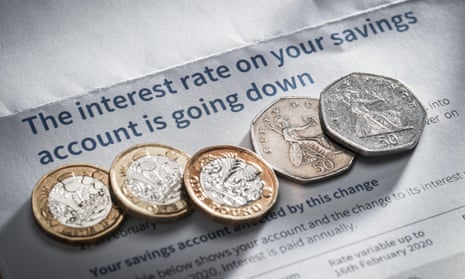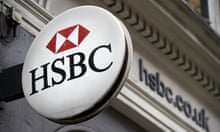If you are one of the millions of people whose savings are languishing in an account paying little or no interest, it might be time to act because you could be earning 4.25%, or more on your cash.
Earlier this week the Coventry building society warned that Britons have a collective £268bn sitting in easy and instant access accounts paying no interest – an increase of more than £9.6bnon a year ago.
After a long period when interest rates on savings accounts were so poor – typically zero or 0.1% – it appears that consumers have got out of the habit of moving their money to get a better deal.
But, fast forward to 2023, and interest rates are back to the point where this exercise is worthwhile. This week Ford Money relaunched its savings products and is offering 4.25% for those prepared to lock their money away for a year – or 4.5% for those signing up to its two-year bonds.
These are savings rates that seemed unthinkable, even until relatively recently.
“Just over a year ago, when the base rate was still at 0.10%, the best easy access account on the market was paying about 0.71% – today Zopa is offering 2.86%, four times as much,” Anna Bowes, who runs the Savings Champion website, said.
“In terms of what that means for the pounds in your pocket, if you have £50,000 in an account paying 0.71%, that would produce interest of £355 a year. If you are instead earning 2.86%, your £50,000 would earn £1,430 per annum. People really need to check what they are getting. For example, Virgin Money is offering just 0.25% on its Everyday Saver easy access account. It’s important to make sure you are not languishing in one of these poor paying accounts,” she said.
Savers who want to keep some access to their money can get 3.35% by opting for a notice account. OakNorth Bank is offering that rate to savers prepared to give it 120 days (about four months) if they want to make a withdrawal. You can also get 3.2% on 90-day notice accounts with several other providers, which will be a better bet if you think you’ll need the money sooner.
While the big banks continue to pay low rates to online savers – typically 0.5%, customers can get significantly better rates even within the same bank, which makes it considerably easier to switch. For example, Barclays is paying 0.5% on its “everyday” saver, or a much more palatable 4% on its one-year flexible cash Isa.
after newsletter promotion
Jeremy Cox, head of strategy at the Coventry building society, says that towards the end of 2022 money going into interest-paying easy access accounts hit an all-time high of £1tn, but that more than £268bn of household savings was still sitting in accounts earning zero interest.
“As we enter the new year, rates of about 3% are readily available in the savings market and we expect money going into zero-paying easy access accounts to lower as savers shift money into higher-rate accounts to maximise their savings pots,” Cox said.









